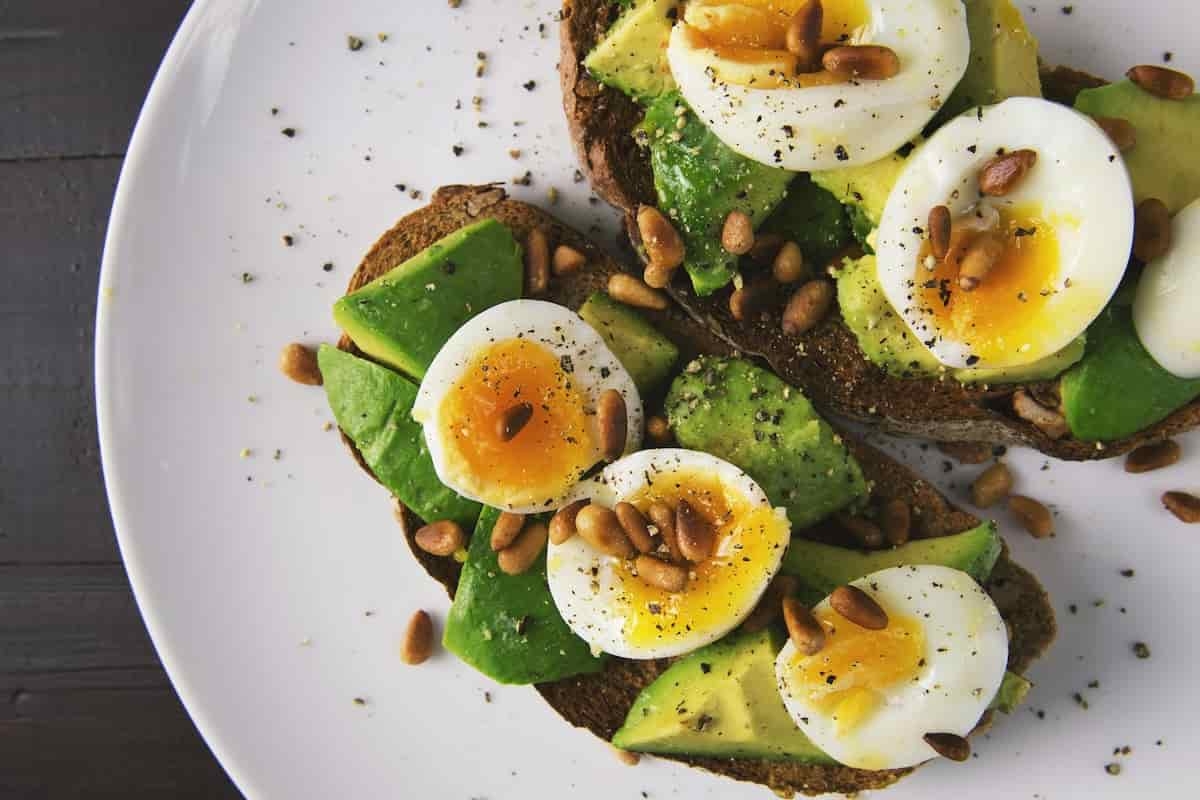Last update: January 22, 2025
4 minute read
Understanding Metabolism
Discover 8 science-backed ways to boost your metabolism for weight loss. Learn how diet, exercise, and sleep affect your metabolic rate. Ready to rev up your calorie burn?

By Derick Rodriguez, Associate Editor
Edited by Dr. Dimitar Marinov, MD, RDN, PhD

Metabolism is a hot topic when it comes to health and weight management. But what exactly is metabolism, and how can you boost it to support your weight loss goals? Let's dive into the science behind metabolism and explore practical ways to rev up your body's calorie-burning engine.
Key takeaways
- Metabolism converts food into various forms of energy and burns it for bodily functions and heat production
- Your basal metabolic rate (BMR) quantifies your calories burned at rest
- Protein intake, muscle-building exercise, and sleep can boost metabolism
What is metabolism?
Metabolism refers to the complex series of chemical processes that convert the food and drinks you consume into energy. This energy fuels everything from breathing and cell repair to physical activity and heat production. Your metabolism is constantly at work, even when you're resting.
Basal metabolic rate: The foundation of your metabolism
A crucial component of metabolism is your basal metabolic rate (BMR). This is the number of calories your body burns at rest to maintain basic life functions. Your BMR accounts for 60-70% of the total calories you burn each day.
Factors influencing your BMR include:
- Muscle mass
- Body composition
- Age
BMR is the main part of your energy expenditure, but it's not all. Your total energy expenditure (TEE) is also made up of your physical activity and the calories your body burns to digest and utilize food.
VitaRx Tip
Understanding your BMR can help you make informed decisions about your diet and exercise routine to support your weight loss goals.
8 ways to boost your metabolism for weight loss
Eat plenty of protein
Protein has a high thermic effect, meaning your body burns more calories digesting it compared to carbs or fats. Aim to include protein in every meal to keep your metabolism humming.
Add high-intensity interval training (HIIT) or resistance training
Intensive training, like resistance exercises or HIIT workouts, can boost your metabolism long after you've finished exercising. This "afterburn effect" helps you continue burning calories at a higher rate.
Lift weights
Building muscle through strength training can increase your BMR. Muscle tissue burns more calories than fat tissue, even at rest. But especially during physical activity.

Get your personalized vitamin recommendations in less than 3 minutes.
Get your personalized vitamin recommendations in less than 3 minutes.

Stand up more
Sitting for long periods can slow down your metabolism as it requires less energy than standing or walking. Try to stand up and move around regularly throughout the day.
Prioritize sleep
Lack of sleep can disrupt hormones that regulate metabolism and sensations of hunger and fullness, potentially leading to weight gain. Aim for 7-9 hours of quality sleep each night.
Enjoy your coffee
Caffeine can help slightly increase fat burning and boost your metabolic rate. Just be mindful of added sugars and creamers that can add unnecessary calories.
Don't take it too frequently
Tolerance develops pretty quickly, so regular intake negates the effect.
Dos and don'ts of boosting your metabolism
Here are some dos and don'ts for boosting your metabolism.
Do’s
Eat regular, balanced meals
Stay hydrated
Include strength training in your routine
Get enough sleep
Don’ts
Skip meals or drastically cut calories
Rely on "fat-burning" supplements
Focus solely on cardio exercise
Ignore the importance of rest and recovery
Frequently asked questions (FAQ)
Here are some of the most frequently asked questions about boosting your metabolism.
Final thoughts
Boosting your metabolism is just one piece of the weight loss puzzle. Remember that sustainable weight management involves a holistic approach that includes a balanced diet, regular exercise, and healthy lifestyle habits.
With the right strategies and support, you can harness the power of your metabolism to achieve your health and fitness goals. Want to learn more about how personalized nutrition can support your metabolic health? Take our health quiz today and discover your tailored supplement plan.
Sources and references
- Physiology, Metabolism - StatPearls - NCBI Bookshelf
- Best Fitting Prediction Equations for Basal Metabolic Rate: Informing Obesity Interventions in Diverse Populations
- A high-protein diet for reducing body fat: mechanisms and possible caveats - PMC
- EPOC Comparison Between Resistance Training and High-Intensity Interval Training in Aerobically Fit Women - PMC
- Sleep and metabolism: an overview
Editor

Derick Rodriguez
Derick Rodriguez focuses on editing health and wellness-related content. With over half a decade of experience in the digital realm, Derick has developed a unique skill set that bridges the gap between complex health concepts and accessible, user-friendly communication. His approach is deeply rooted in leveraging personal experiences and insights to illuminate the nuances of health and wellness topics, making them more approachable and empowering readers with knowledge and confidence.
Fact checker

Dr. Dimitar Marinov
Dr. Marinov has years of experience in scientific research and preventive and clinical medicine. His publications in peer-reviewed journals are on nutritional status, physical activity, and musculoskeletal disorders among adolescents.
At VitaRx, we're not just passionate about our work — we take immense pride in it. Our dedicated team of writers diligently follows strict editorial standards, ensuring that every piece of content we publish is accurate, current, and highly valuable. We don't just strive for quality; we aim for excellence.
Related posts
While you're at it, here are some other relevant articles you might be interested in.

Get your personalized vitamin recommendations in less than
5 minutes.
Get your personalized vitamin recommendations in less than
5 minutes.






